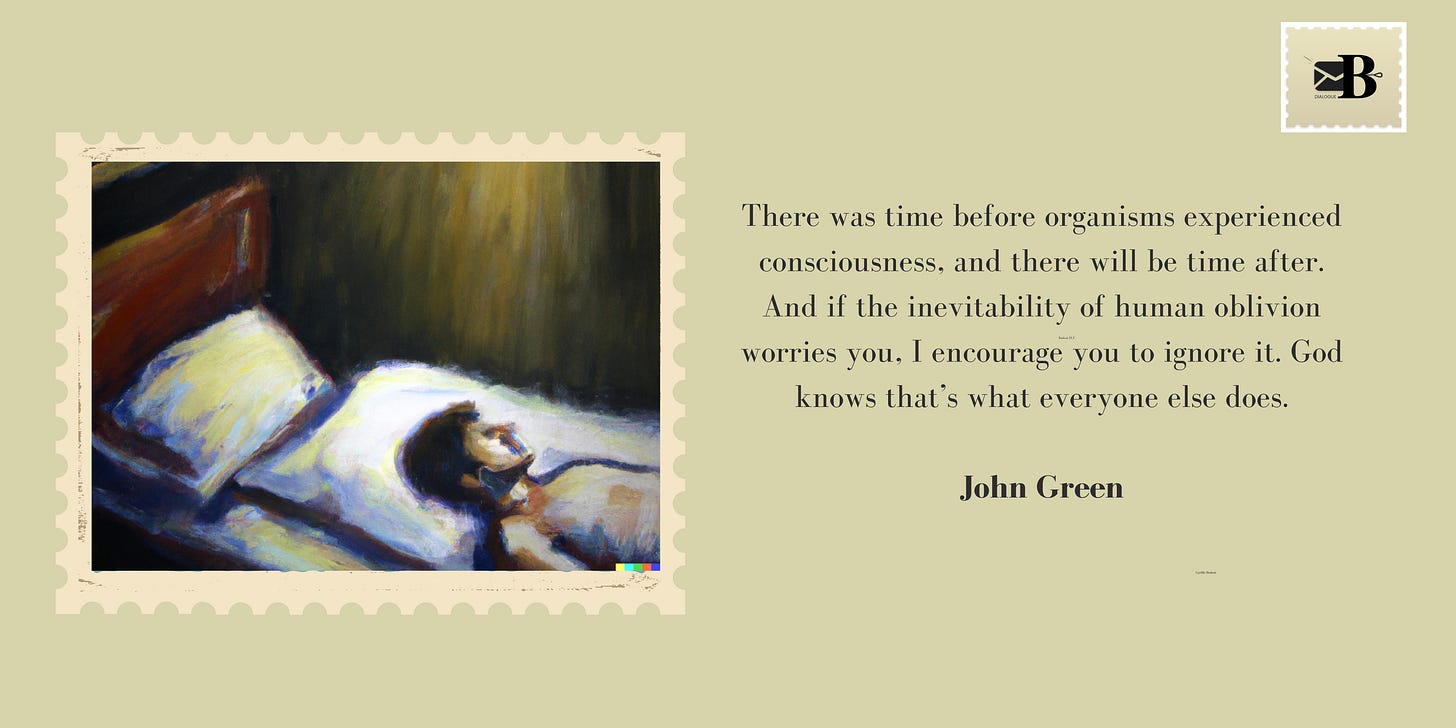Letter #34 A profound exploration of existence, Philip Larkin & Ghalib Couplet
I took a deep breath and listened to the old brag of my heart. I am, I am, I am ― Sylvia Plath
Disclaimer: The following text explores personal experiences, literary interpretations, and philosophical concepts related to sensitive topics such as existence. While efforts have been made to present these ideas thoughtfully, please be aware that discussions on these subjects can be deeply personal and subjective. Reader discretion is advised, and it is recommended to approach these topics with an open mind and respect for differing perspectives.
Dear Friend,
One night this week, I got excessively drunk and found myself waking up in the early hours of the morning. This experience reminded me of a beloved poem, Aubade by Philip Larkin, which I had even published in one of the miscellany. The reason I chose to revisit Aubade was not only due to my own drunken awakening, but also because I could relate to the thoughts and emotions that Philip Larkin expressed in those early morning hours.
I work all day, and get half-drunk at night.
Waking at four to soundless dark, I stare.
In time the curtain-edges will grow light.
Till then I see what’s really always there:
Unresting death, a whole day nearer now,
Making all thought impossible but how
And where and when I shall myself die.
Arid interrogation: yet the dread
Of dying, and being dead,
Flashes afresh to hold and horrify.
Those thoughts have always been with me. I remember asking my father the same question when I was young, but he scolded me for such a silly inquiry. I understand his perspective. We tend to overlook this realization. I attempted to answer this question and it brought to mind a couplet by Ghalib.
न था कुछ तो ख़ुदा था कुछ न होता तो ख़ुदा होता
डुबोया मुझ को होने ने न होता मैं तो क्या होता
This couplet by Ghalib is incredibly popular and holds great significance. It's what makes me consider Ghalib the greatest poet of all time. Ghalib suggests that even in nothingness or non-existence, God still exists. It means that God surpasses the boundaries of existence and non-existence. The line "न था कुछ तो ख़ुदा था कुछ न होता तो ख़ुदा होता" demonstrates that God's existence isn't reliant on anything else; even if there were nothing else, God would continue to exist. As I explore history, I'm inclined to expand upon this idea and suggest that the world will persist, just as it has done before.
In reflecting upon the works of both Philip Larkin and Mirza Ghalib, I find that they are not promoting nihilism, but rather presenting life as it is—a profound exploration of existence, meaning, and the enduring nature of the world itself.
I’ll write again my friend
Yours,
Bohemian Dialogue


